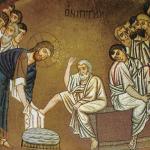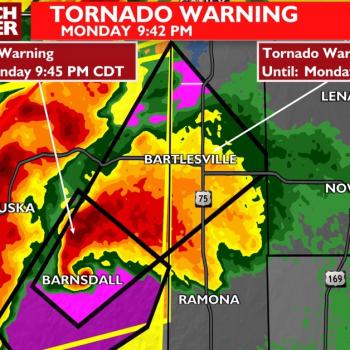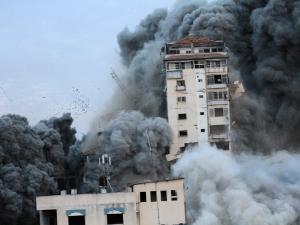
When viewed from a scriptural perspective, the 2023 Israel-Hamas War reveals essential spiritual truths every Christian must know.
This is a major world event that, as of this writing, is still developing. Please refer to trusted news sources to get up to the minute updates.
What’s Going On
Early morning October 7, the terrorist organization Hamas initiated sweeping attacks deep into Israel from the blockaded Gaza Strip. Militants combined air, sea, and land offensives by breaching Israel’s heavily fortified border, firing thousands of rockets into populated areas, and storming nearby towns.
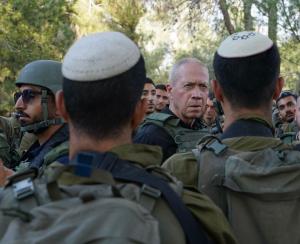
In response, Israel declared war and launched a counteroffensive called “Operation Swords of Iron.” This conflict is historically noteworthy because it represents the greatest hostility in Israel since the 1948 Arab-Israeli War.
During two days of intense, prolonged fighting in the streets, children and infants were shot at point blank range and dismembered. More than 1,200 Israeli soldiers and civilians were killed before Israel regained control of the area, and so far, the bodies of 1,500 Hamas militants have been recovered inside Israel.
As the militants retreated back into Gaza, gunmen kidnapped approximately 150 civilian hostages from their homes and off the street, including several from a music festival. Hamas has threatened to execute the hostages and broadcast the act should Israel attack Gaza without notice.
At least 1,100 people have been killed as a result of Israeli large-scale airstrikes on Gaza aimed at Hamas and combatants from the Islamic Jihad. Israel imposed a comprehensive siege on Gaza, limiting essential services like electricity, food, fuel, and water deliveries. All border crossings between Israel and Gaza have been closed.
As of this writing, Israel is geographically surrounded by enemy combatants, including Hamas, Islamic Jihad, PFLP, and DFLP at the Gaza Strip, Lion’s Den on the West Bank, and Hezbollah along the northern border shared with Lebanon.
The United States is advising Israel regarding the hostages and is sending military advisors to organize a safe passage for Gaza civilians into Egypt . Twenty-two Americans have died in the conflict, and the White House has confirmed American citizens are among the hostages abducted by Hamas.
On October 11, Israel shifted to an emergency government dedicated solely to war efforts until the conflict is resolved.
October 13, Israel ordered an evacuation of 1.1 million citizens from northern Gaza, signaling a military incursion and ground war in Gaza is eminent.
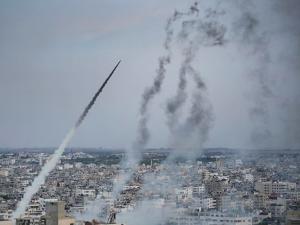
War Crimes and Collective Punishment
Hamas has committed atrocities during this conflict that can only be defined as evil.
Israeli Prime Minister Benjamin Netanyahu described the aftermath of the attack during a news conference, stating, “We witnessed children and teenagers bound and shot in the head, men and women burned alive, and young women subjected to unspeakable violence. Soldiers met gruesome fates as well.” Experts universally agree that these actions constitute war crimes.
A compelling argument can also be made that Israel’s combination of a siege in Gaza, including restrictions on food, water, and power, along with air strikes on civilian targets, might also amount to “collective punishment.”
Hamas and other militant groups have justified their actions as responses to what many characterize as Israeli apartheid and colonialism.
Notably, for the past sixteen years, the people of Gaza, including the elderly, women, and children, have suffered due to a blockade that restricts access to essential items such as drugs, medical supplies, and food. This has resulted in widespread disease and malnutrition. Human Rights Watch described Gaza as an “open-air prison,” where 80% of the population relies on humanitarian aid for survival.
Israel has faced international criticism for the quarantine of Gaza. Many countries and organizations consider it a humanitarian crisis.
Regardless of what acts are committed by whom, it is not simplistic for Christians to value the lives of innocent people—it is Christlike.
Misplaced Sympathies
Many Christians rush to support Israel while overlooking aggressive and imperialistic Israeli actions against innocent Gaza citizens. This is often due to a mistaken conflation between the biblical Israelites with the modern nation currently engaged in war with Hamas. Both groups are distinct in terms of time, governance, and purpose.

In the Old Testament, the Israelites were a group of people who were descendants of the biblical patriarch Jacob, also known as Israel. The kingdom of Israel referred to the united monarchy under King Saul, King David, and King Solomon, as well as the subsequent divided kingdoms of Israel (northern) and Judah (southern).
By contrast, the parliamentary democracy that we today call Israel is a modern political entity. Founded in 1948 in the aftermath of World War II, Israel was established as the result of a United Nations resolution.
Misplaced Beliefs
Some Christians have drawn a parallel between the theme and content of Psalm 83 and the Israel-Hamas War. These sensational connections are patently ridiculous.

Psalms are religious songs, poems, and prayers collected in the what Christians call the Old Testament. A psalm is intended to express the human author’s emotions and personal reflections, and are often directed to God personally. Although there may be elements of literary devices such as foreshadowing or references to future events in some psalms, by contrast, prophetic literature involves the direct communication of divine messages, warnings, and predictions.
The reason why Psalm 83 has been mentioned in connection with the Israel-Hamas war is because it describes a conflict where the historical kingdom of Israel is surrounded, and enemies are plotting an invasion.
Of course, Psalm 83:4 depicts Israel’s enemies saying, “…let us destroy them as a nation, so that Israel’s name is remembered no more.” This is evocative of statements Hamas has made, although the sentiment of some Islamist groups and individuals advocating for the destruction of Israel has been present since the establishment of the state of Israel in 1948.
Make no mistake, Psalm 83 is dark stuff. While it is a lament, it is also an expression of unadulterated hatred. The author openly asks God to obliterate and disgrace the enemies of Israel. That God had apparently not intervened should have been a clue to the author, and to us as well.
Theologically, this informs not only how we should view ancient Israel and the embattled state of Israel today, but ourselves as well.
In the psalm, the author assumes God will override the free will of Israel’s enemies. That is what would be required for Israel to gain unqualified victory. It perfectly illustrates that both then and now a desire for vengeance can be stronger than hope for healing.
But the lasting message of the Psalm and of this present conflict isn’t about vengeance, victory, or even survival. In the face of the enemy, the true battle is for our hearts.
She Made Them Cookies
“You have heard that it was said, ‘Eye for eye, and tooth for tooth.’ But I tell you, do not resist an evil person. If anyone slaps you on the right cheek, turn to them the other cheek also.” (Matthew 5:38-39, NIV)
In Latin, it is called lex talionis, or the law of revenge. I do not find it coincidental that Jesus spoke the verbatim idiom “eye for eye and tooth for tooth” that justifies vengeance in both the Tanakh (Hebrew Bible) and Quran before he commanded all who were listening to not resist evil and turn the other cheek.
Rather than fighting against evil, the only way to protect our hearts from the destruction of revenge is to offer ourselves as a willing sacrifice and surrender.
The beauty and symmetry of Christ’s teaching is obvious: we do not give others the punishment they deserve because we did not receive the punishment we deserve.
Then he said, “…love your enemies and pray for those who persecute you.” (Matthew 5:44, NIV)
We love our enemies because God loves his enemies.

Not only should this orient our relationships and the choices we make, but it also provides a theological context for all conflicts, great and small.
Five Hamas militants stormed the home of Rachel and David Edri just outside Gaza, holding the elderly couple hostage for over twenty hours. Rather than resist or fight, Rachel cooked for enemies pointing guns and shouting curses at her and her husband. While her neighbors were being slaughtered, she brewed coffee, made chicken, and handed out cookies. And she and David survived.
Of course it is tragic and awful to hear of decapitated children, or starving mothers without food, water, or power. Moral outrage is a natural response.
This war should inspire us as Christ-followers to take a stand for something more important than land, freedom, the revenge of terrorists, relief from tyranny, or even life itself: Love.




